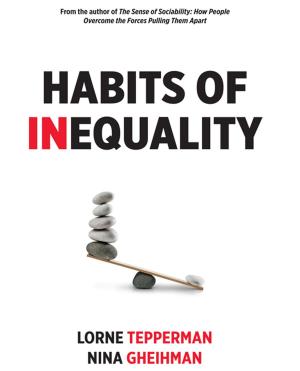Faithonomics
Religion and the Free Market
Nonfiction, Religion & Spirituality, Christianity, Church, Church & State, Social & Cultural Studies, Political Science| Author: | Torkel Brekke | ISBN: | 9780190694753 |
| Publisher: | Oxford University Press | Publication: | October 15, 2016 |
| Imprint: | Oxford University Press | Language: | English |
| Author: | Torkel Brekke |
| ISBN: | 9780190694753 |
| Publisher: | Oxford University Press |
| Publication: | October 15, 2016 |
| Imprint: | Oxford University Press |
| Language: | English |
Faithonomics uses economic theory to provide a new and unorthodox view of religion in today's world. Drawing on state-of-the-art research and on case studies from around the globe, this book shows that religion should be analysed as a market similar to markets for other goods and services, like bottled water or haircuts. Faithonomics is about today's religious markets, but in sweeping detours through the histories of Christianity, Islam, Buddhism and Hinduism, Brekke shows us the religious markets of the past, although these were sometimes heavily regulated by states. He argues that government 'control' over religious markets is often the cause of unforeseen and negative consequences. Many of today's problems related to religion, like religious terrorism or rent-seeking by religious political parties, are easier to understand if we think like economists. Religious markets work best when they are relatively free. Religious organizations should be free to sell their products without unnecessary restrictions, but we have no good reason to grant them privileges in the form of subsidies or tax-breaks.
Faithonomics uses economic theory to provide a new and unorthodox view of religion in today's world. Drawing on state-of-the-art research and on case studies from around the globe, this book shows that religion should be analysed as a market similar to markets for other goods and services, like bottled water or haircuts. Faithonomics is about today's religious markets, but in sweeping detours through the histories of Christianity, Islam, Buddhism and Hinduism, Brekke shows us the religious markets of the past, although these were sometimes heavily regulated by states. He argues that government 'control' over religious markets is often the cause of unforeseen and negative consequences. Many of today's problems related to religion, like religious terrorism or rent-seeking by religious political parties, are easier to understand if we think like economists. Religious markets work best when they are relatively free. Religious organizations should be free to sell their products without unnecessary restrictions, but we have no good reason to grant them privileges in the form of subsidies or tax-breaks.















